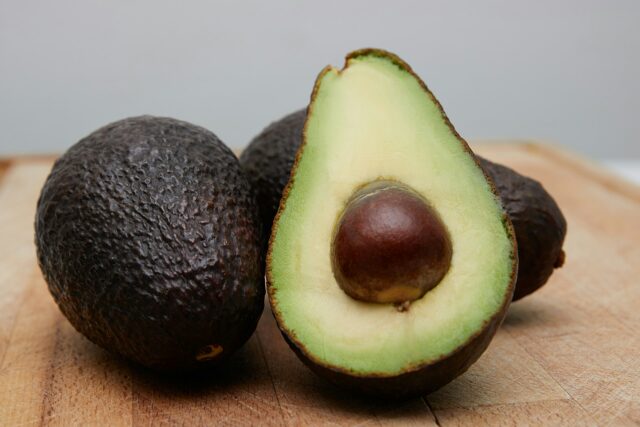Eating healthily doesn’t have to mean counting every calorie or never having a takeaway.

Not only is that unsustainable long-term, but it’s also unnecessary. It’s possible to have a diet full of nutrient-rich foods but also leave room for a treat here and there. The problem is that so many people tend to overcomplicate things, when really, it’s quite simple. If you want to strike more balance in your diet, here are a few tips you might want to adopt.
1. Start your day with a balanced breakfast.

Skipping breakfast can leave you feeling sluggish and more prone to unhealthy snacking later in the day. A balanced breakfast with protein, healthy fats, and fibre can kick-start your metabolism and keep you satisfied. Think scrambled eggs with avocado on whole-grain toast or a bowl of yoghurt with berries and nuts.
2. Drink a glass of water before each meal.

Staying hydrated helps with digestion, keeps your energy levels up, and can prevent you from mistaking thirst for hunger. Drinking a glass of water before meals can also help with portion control by making you feel a bit fuller before you eat. It’s a simple habit that can make a big difference.
3. Add more colourful vegetables to your plate.

Incorporating a variety of colourful vegetables ensures you’re getting a range of nutrients. Different colours often mean different vitamins and antioxidants. Try to fill half your plate with veggies at lunch and dinner. Think roasted peppers, sautéed spinach, or a side of crunchy carrot sticks.
4. Plan your meals ahead of time.
 Source: Unsplash
Source: Unsplash When you’re hungry and unprepared, it’s easy to grab whatever is convenient—often something less healthy. Meal planning helps you make more thoughtful food choices. Set aside a few minutes each week to plan your meals and make a shopping list. It saves time, money, and stress.
5. Swap out refined grains for whole grains.

Refined grains like white bread or white rice can cause spikes in blood sugar. Whole grains, like brown rice, quinoa, and whole-grain bread, are packed with fibre, which helps with digestion and keeps you feeling full longer. Simple swaps can make your meals more nutritious without much effort.
6. Practice mindful eating.
 Source: Unsplash
Source: Unsplash It’s easy to eat on autopilot, especially when you’re distracted by screens or in a rush. Mindful eating means paying attention to your food—savouring each bite, noticing the textures, and listening to your body’s hunger and fullness signals. It helps you enjoy your meals more and avoid overeating.
7. Limit sugary drinks.

Sugary drinks like sodas, energy drinks, and even some smoothies can pack a lot of empty calories. Swapping these for water, herbal teas, or sparkling water with a splash of lime can cut back on your sugar intake without sacrificing flavour. Your body (and your teeth) will thank you.
8. Incorporate healthy fats.
 Source: Unsplash
Source: Unsplash Fat isn’t the enemy. Healthy fats like avocados, nuts, seeds, and olive oil are essential for brain function, energy, and absorbing vitamins. Add avocado to your toast, sprinkle chia seeds on your smoothie, or drizzle olive oil on your salad. They’ll keep you full and satisfied longer.
9. Eat more protein with each meal.

Protein helps build muscle, keeps you full, and stabilises your blood sugar. Adding a source of protein to every meal is an easy way to stay satisfied throughout the day. Think grilled chicken, tofu, eggs, beans, or fish. Even snacks like Greek yoghurt or a handful of almonds can boost your protein intake.
10. Snack smartly.

Snacking isn’t a bad thing if you do it mindfully. Instead of reaching for crisps or sweets, opt for snacks that combine protein, healthy fats, and fibre. Apple slices with peanut butter, hummus with veggies, or a handful of mixed nuts are all satisfying choices that will keep your energy steady.
11. Eat slowly and chew thoroughly.

It takes about 20 minutes for your brain to register that you’re full. Eating too quickly can lead to overeating because your body doesn’t have time to send the “I’m full” signal. Chewing your food thoroughly and taking your time with meals helps you digest better and feel more satisfied.
12. Keep healthy snacks accessible.

If the first thing you see in your kitchen is a pack of biscuits, that’s probably what you’ll eat. Keeping healthy snacks visible and within reach—like a bowl of fruit on the counter or pre-cut veggies in the fridge—makes it easier to make nutritious choices when hunger strikes.
13. Allow yourself treats without guilt.

Healthy eating isn’t about deprivation. Allowing yourself the occasional treat without guilt helps create a balanced, sustainable approach to food. Enjoy that slice of cake or bowl of ice cream, and then get back to your healthy habits. Food is meant to be enjoyed, not obsessed over.




